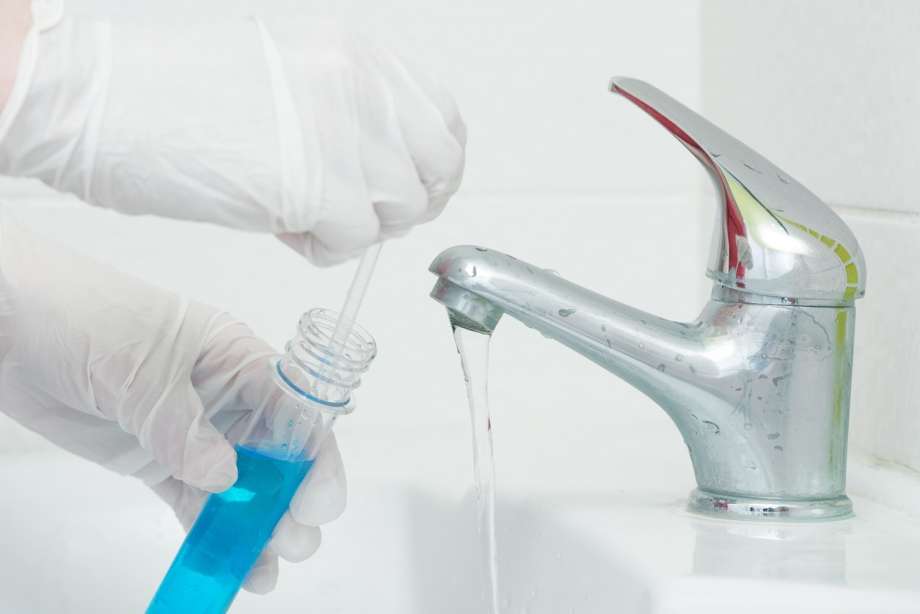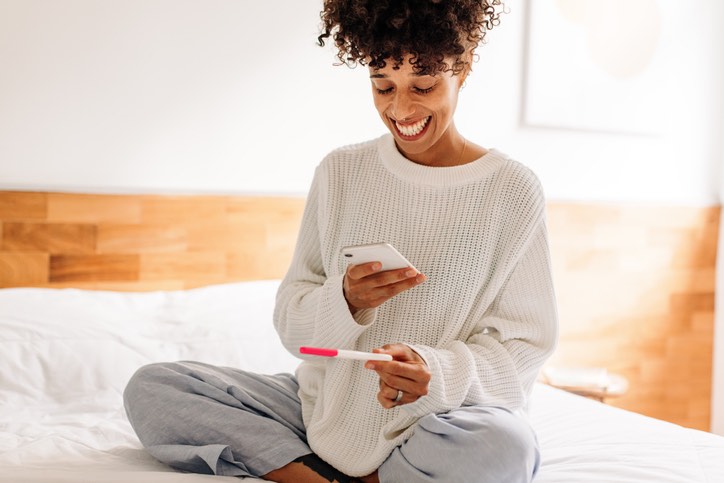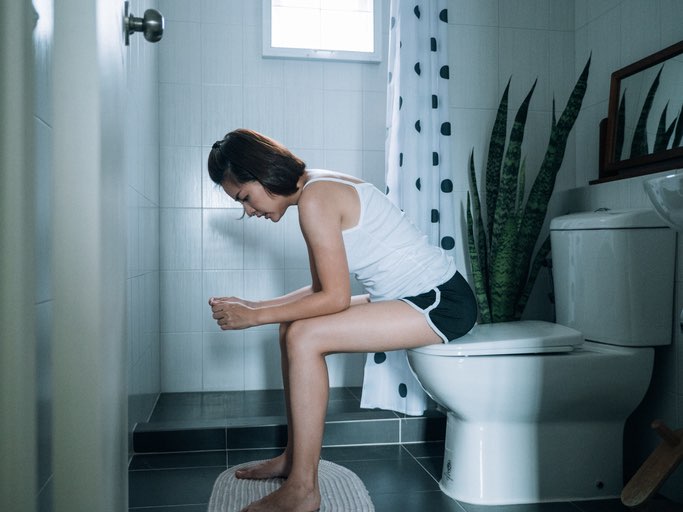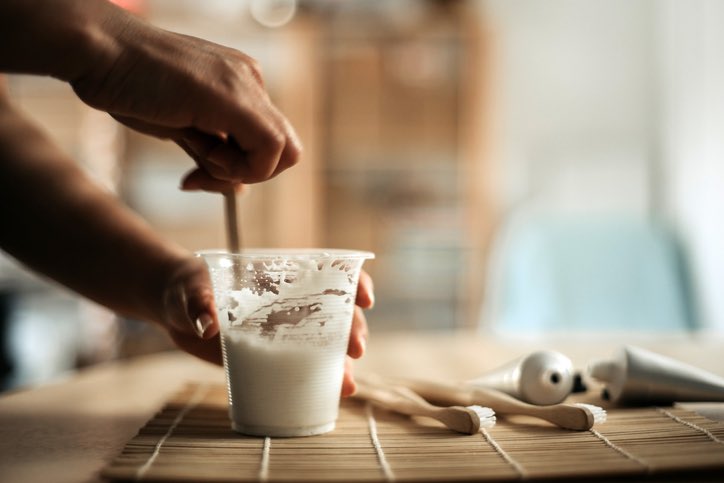Do DIY Pregnancy Tests Work?

You might have read about making your own homemade pregnancy test on social media. We break down how they work, if they work, and how accurate they are before you decide to get science mad at home!
How Do Pregnancy Tests Work?

Home pregnancy tests that you can buy from the supermarket (such as a strip test or digital test) measure the hormone human chorionic gonadotropin (HCG) in your urine. Your body begins making this hormone after an implantation. The tests tell you whether HCG is present in your body.
Your body only makes HCG when you are pregnant, so even the faintest line indicates a positive result. It is possible to get a false positive result in some cases.
But, it is also possible to get a false negative result. This happens when either you haven’t started producing HCG yet or the concentration is still low. For this reason it is best to wait until after your missed period to take a pregnancy test.
Although many of these strip and digital tests are pretty accurate if you take them correctly, a blood test or ultrasound carried out by your OBGYN or healthcare provider is the only way to fully confirm that you are indeed pregnant.
Is a DIY Pregnancy Test Effective?
If you don’t have a test at home or can’t afford one, you may be wondering if it’s worth creating a DIY pregnancy test. You may have even heard about them on social media. These homemade pregnancy tests are ‘designed’ to detect the HCG hormone in a urine sample, so like store-bought tests, false negatives are possible, but also far more likely, of course.
Homemade tests may have anecdotal evidence to back them up, but there is no scientific evidence to support their accuracy and there’s a greater margin for error when you make your own. So, you can’t rely on a homemade test to give you a reliable pregnancy test result.
To confirm pregnancy, first use a store-bought home pregnancy test any time after your missed period. Be sure to use your first urine of the day. Then, contact your healthcare provider to schedule a blood test or ultrasound.
How Can I Check If I'm Pregnant Without a Pregnancy Test?

If you try out a homemade pregnancy test, stack the odds in your favor by waiting until after your missed period to test and using your first morning urine to ensure that the potential HCG levels are at their highest possible concentration.
DIY tests look for a chemical reaction with your urine that could only happen if the pregnancy hormone were present.
But remember, even if you follow the instructions carefully, it’s unlikely that the test will give you an accurate indication of whether or not you are pregnant.
Things to Consider Before Trying a DIY Test
If you are struggling with fertility issues or you have anxiety around pregnancy and trying to conceive, testing via a DIY method may have emotional consequences for you. Consider whether taking these less accurate DIY tests may bring about emotional distress or panic. You should never make plans based off of a homemade pregnancy test.
Do Pregnancy Tests Work on Pets?
You might wonder whether you can use a home pregnancy test on your companion animal, especially if your pet is a mammal, such as a cat or dog. In fact, HCG has not been found in all mammals, but only in humans and a few other primates.
If you think your pet might be carrying a baby, contact your veterinarian instead of opting for a DIY pregnancy test.
Safety and Accuracy of Different DIY Pregnancy Tests - Fact Checked

The one ingredient you need for any homemade pregnancy test is your urine. The other ingredients may be found in your home or at a store. Not only are homemade pregnancy tests inaccurate, some can even be considered unsafe to create.
The homemade pregnancy tests described below have no scientific basis. No research suggests that they are accurate methods for detecting pregnancy.
Furthermore, there’s also anecdotal evidence that urine from non pregnant people can cause some of the positive reactions described. That's a further reason not to rely on a DIY pregnancy test!
1. Bleach Pregnancy Test
You may have heard about the method of mixing equal amounts of bleach and your urine to check if you are pregnant. Be aware that bleach and urine create toxic fumes when mixed. It can be dangerous if one inhales the mixture when creating this test. It’s also important not to leave open bleach lying around if you have a child that could come into contact with it - this can be extremely dangerous.
2. Dandelion Leaf Pregnancy Test
Gathering dandelion leaves and pouring your urine over them in a cup is something others have tried. Apparently, if you wait an hour and check the leaves and red blisters appear, this can indicate pregnancy. Whilst this method doesn’t require any unsafe chemicals, like all DIY pregnancy tests, there’s no scientific evidence to back it up.
3. Soap Pregnancy Test
Here’s the method:
‘Collect a urine sample and add soap to it. You can crush up bar soap or add some liquid soap. Wait a few minutes and check the mixture for some sign of change. If you see any kind of chemical reaction, you could be pregnant.’
This method is probably the least accurate because there’s so much variation in soap’s ingredients. There is also not a specific change to look out for, so it can be hard to pinpoint whether your result is positive.
Other DIY Pregnancy Tests You Might Have Heard About
Here are some other methods that you may have come across. None of them have scientific evidence to back them up, so we don’t recommend giving them a go if you’re looking for an accurate result!
Salt Pregnancy Test
Method:
Mix a few tablespoons of salt with a sample of your urine. Wait a few hours and check the mixture. If it appears milky, you may be pregnant.
Sugar Pregnancy Test
Method:
Put a tablespoon of sugar into a bowl and add your urine to it. If the sugar dissolves, it indicates no pregnancy. If instead, it clumps up, it indicates a pregnancy.
Toothpaste Pregnancy Test

Method:
Collect white toothpaste in a cup and pour a urine sample over it. If it fizzes or changes color to blue, you could be pregnant.
DIY Urine Pregnancy Test
Method:
Collect your urine in a clear jar. Wait 24 hour and check the jar for a thin layer of foam at the top. If you see it, you might be pregnant.
Vinegar Pregnancy Test
Method:
Combine two parts white vinegar with one part urine. Wait 3 minutes and check the mixture. If it changes color, that could indicate pregnancy.
Confirming Pregnancy
Again, none of these pregnancy tests can give you a truly accurate result.
Only your OB/GYN can truly confirm your pregnancy. A blood test can accurately detect HCG and an ultrasound can detect an embryo in your uterus.
Read More: Every Explanation for a False Positive Pregnancy Test

